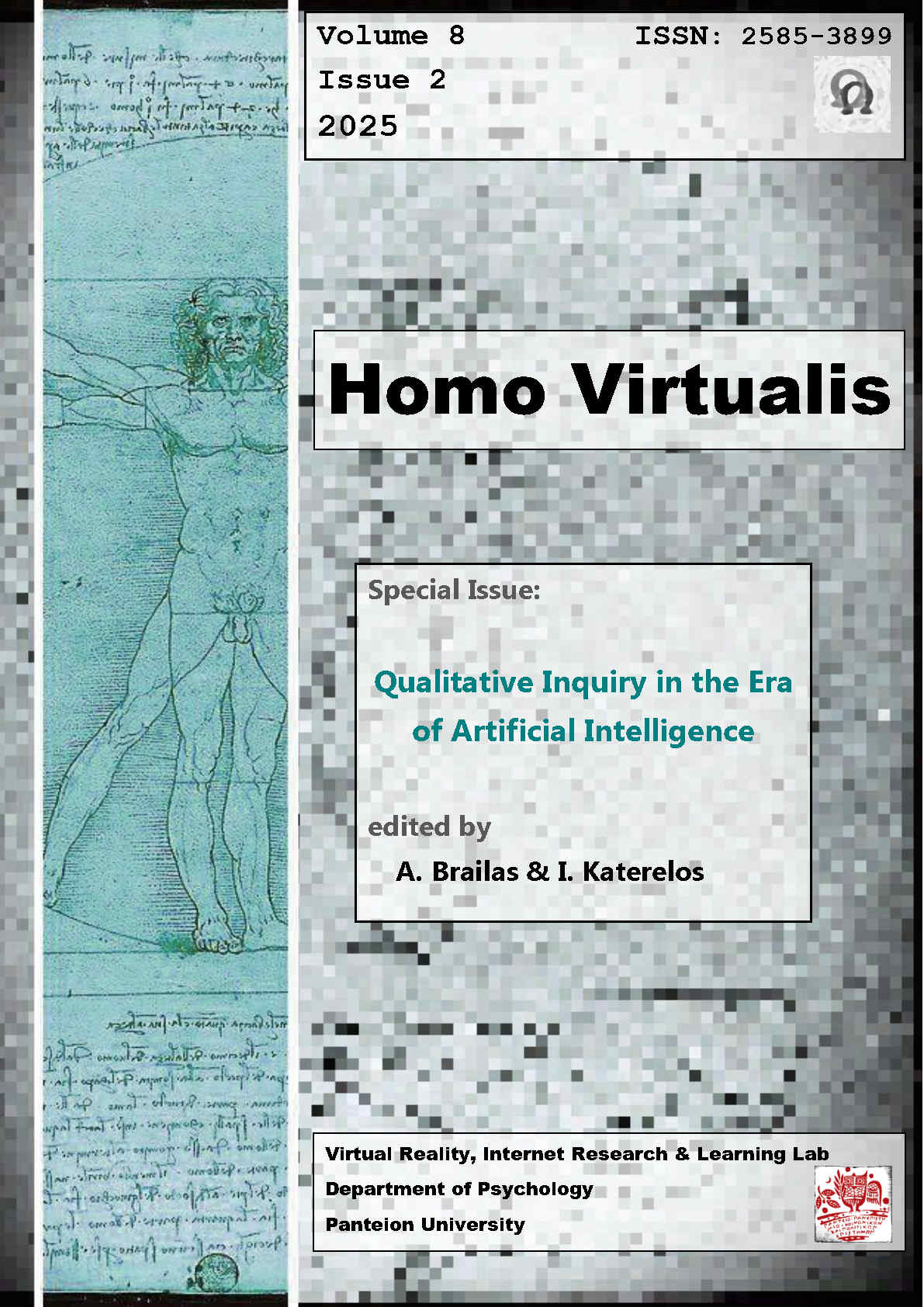Romantic relationships in emerging adulthood: An intercultural approach
Аннотация
This study examines romantic relationships during the period of emerging adulthood, with a particular focus on Southern European countries, specifically Greece, Italy, and Spain. Adopting a qualitative, phenomenological and interpretative approach, it seeks to explore the lived experiences of romantic relationships within the broader sociocultural environment that shapes them. The research addresses a significant gap in the existing literature concerning romantic relationships in Southern Europe, particularly the impact of prolonged co-residence with family on relational development and autonomy. The study is grounded in Arnett’s theory of emerging adulthood, as well as the developmental frameworks proposed by Shulman & Connolly and Hochberg & Konner. Data were produced through multimodal interviews with 11 participants aged 18 to 24. The interview design integrated narrative, visual, and appreciative inquiry techniques. Thematic Analysis was employed using the QualCoder QDA software, through which five central themes were identified. The findings indicate that early cultural narratives contribute to the formation of idealized expectations regarding romantic relationships, which gradually evolve into more realistic conceptions over time. Participants demonstrated an ambivalent orientation toward love, intimacy, and commitment, reflecting a tension between the longing for deep emotional connection and the desire to maintain personal freedom. Within this context, technology plays a dual role, facilitating communication and connection while also enabling controlling and intrusive behaviors. Finally, family involvement was found to delay the process of individuation and restrict the exploration of sexuality. Within this context, technology serves a dual role, facilitating communication and connection while enabling controlling and intrusive behaviors. Finally, family involvement was found to delay the process of individuation and restrict the exploration of sexuality. Overall, this study adopts an intercultural approach, emphasizing the dynamic interplay between cultural norms, family structures, and individual experiences in shaping the meaning and expression of romantic relationships among emerging adults in Southern Europe.
Article Details
- Как цитировать
-
Louki, E. (2025). Romantic relationships in emerging adulthood: An intercultural approach. Homo Virtualis, 8(2), 136–174. https://doi.org/10.12681/homvir.43490
- Раздел
- Articles

Это произведение доступно по лицензии Creative Commons «Attribution» («Атрибуция») 4.0 Всемирная.
Authors who publish with this journal agree to the following terms:
· Authors retain copyright and grant the journal right of first publication with the work simultaneously licensed under a Creative Commons Attribution License that allows others to share the work with an acknowledgement of the work's authorship and initial publication in this journal.
· Authors are able to enter into separate, additional contractual arrangements for the non-exclusive distribution of the journal's published version of the work (e.g. post it to an institutional repository or publish it in a book), with an acknowledgement of its initial publication in this journal.
· Authors are permitted and encouraged to post their work online (preferably in institutional repositories or on their website) prior to and during the submission process, as it can lead to productive exchanges, as well as earlier and greater citation of published work.



